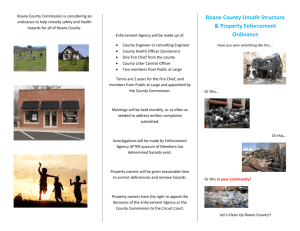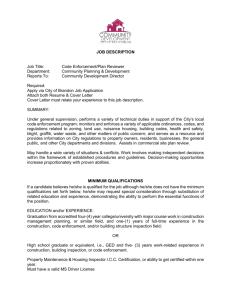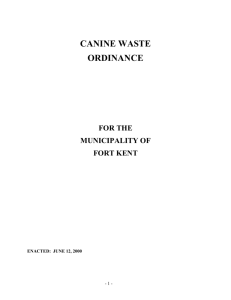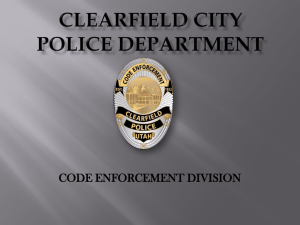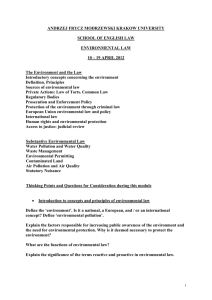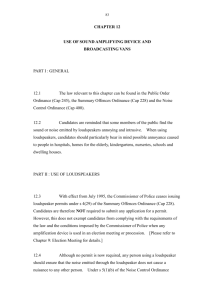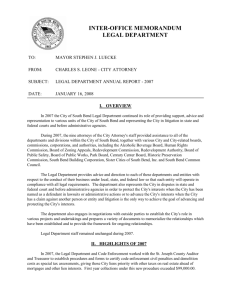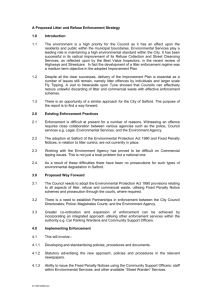Types SH Liability
advertisement
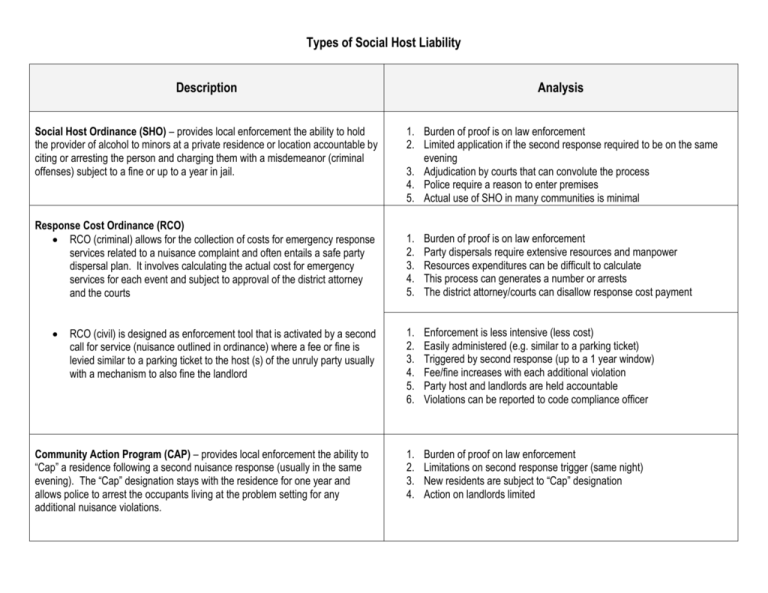
Types of Social Host Liability Description Analysis Social Host Ordinance (SHO) – provides local enforcement the ability to hold the provider of alcohol to minors at a private residence or location accountable by citing or arresting the person and charging them with a misdemeanor (criminal offenses) subject to a fine or up to a year in jail. 1. Burden of proof is on law enforcement 2. Limited application if the second response required to be on the same evening 3. Adjudication by courts that can convolute the process 4. Police require a reason to enter premises 5. Actual use of SHO in many communities is minimal Response Cost Ordinance (RCO) RCO (criminal) allows for the collection of costs for emergency response services related to a nuisance complaint and often entails a safe party dispersal plan. It involves calculating the actual cost for emergency services for each event and subject to approval of the district attorney and the courts RCO (civil) is designed as enforcement tool that is activated by a second call for service (nuisance outlined in ordinance) where a fee or fine is levied similar to a parking ticket to the host (s) of the unruly party usually with a mechanism to also fine the landlord Community Action Program (CAP) – provides local enforcement the ability to “Cap” a residence following a second nuisance response (usually in the same evening). The “Cap” designation stays with the residence for one year and allows police to arrest the occupants living at the problem setting for any additional nuisance violations. 1. 2. 3. 4. 5. Burden of proof is on law enforcement Party dispersals require extensive resources and manpower Resources expenditures can be difficult to calculate This process can generates a number or arrests The district attorney/courts can disallow response cost payment 1. 2. 3. 4. 5. 6. Enforcement is less intensive (less cost) Easily administered (e.g. similar to a parking ticket) Triggered by second response (up to a 1 year window) Fee/fine increases with each additional violation Party host and landlords are held accountable Violations can be reported to code compliance officer 1. 2. 3. 4. Burden of proof on law enforcement Limitations on second response trigger (same night) New residents are subject to “Cap” designation Action on landlords limited


